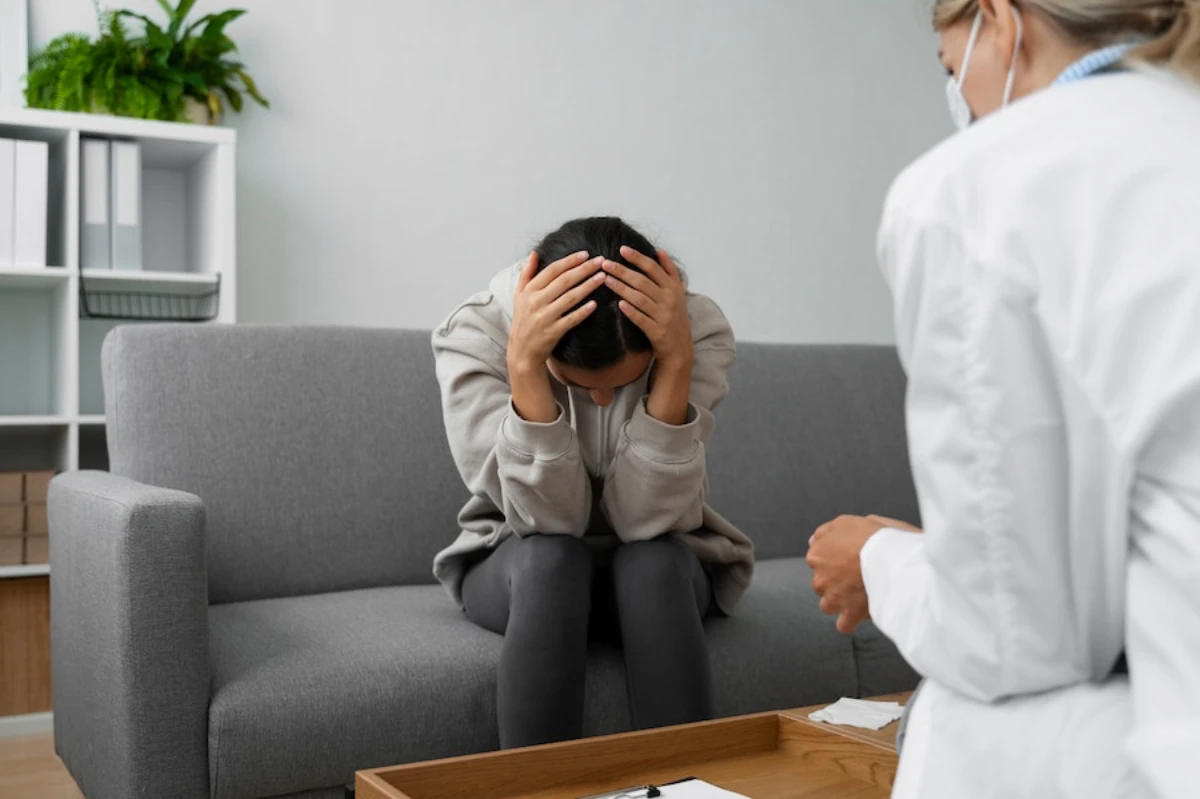Feeling down? Talk therapy is not the sole choice! The field of counseling is expanding to include a broader spectrum of therapies. This blog explores the intriguing realm of creative treatment for depression. It is an alternate option for individuals looking for a more active and expressive approach to healing. Consider paintbrushes, music, and even movement.
Creative counseling uses many artistic practices, like art, music, dance and movement therapy. A counsellor for depression helps people explore their emotions, discover themselves, and build better coping skills. These treatments provide a safe setting for patients to express themselves without using words, resulting in enhanced self-awareness and control over their symptoms.
Prepare to learn more! This blog will look at the benefits of these creative techniques, emphasizing how they efficiently address key characteristics of depression, such as negative thinking and social isolation. We’ll also look at how these strategies might be used by counsellor for depression to form a comprehensive treatment plan for long-term mental health.
Art Therapy: Brushing Away the Darkness
Art therapy allows you to express feelings that are difficult to articulate verbally. Painting, drawing, sculpture, and even collage allow you to explore inner conflicts, negative thoughts, and personal experiences in a safe and nonjudgmental setting. The focus is on the process, not the end product. Engaging with creative materials may be therapeutic, allowing you to release unwanted emotions and get a better understanding of your inner world.
Art therapists may guide you via recommendations and exercises that encourage self-reflection. Analyzing the colors, shapes, and textures of your artwork might provide important information about your emotional state and cognitive tendencies. It can also help you develop positive coping mechanisms by employing sketching skills to imagine your happy place or to create a visual representation of your depression-management objectives.
Music Therapy: Finding Harmony Within
Music has a great ability to evoke emotions. Music therapy takes advantage of this potential to assist clients in navigating the complicated realm of depression-related emotions. Listening to carefully crafted playlists, playing instruments (even if you’re a novice), or making your own music may all be soothing.
Music therapists can help you compose works that express your emotional condition. This method enables the investigation and release of challenging emotions. Furthermore, playing an instrument may be a source of pride and delight, promoting a sense of mastery. Music therapy may also be used to improve social interaction; performing music with others in a group environment can help to alleviate feelings of loneliness and build a sense of belonging.
Dance or Movement Therapy: Moving Your Body, Moving Your Mood
Dance and movement therapy uses physical movement as a means of emotional expression and communication. It’s not about performing flawless dancing steps; it’s about integrating your body and head. You can explore a variety of emotions and release pent-up energy by engaging in guided improvisation, free movement, or exercises. Dance therapy can be especially beneficial in resolving the emotions of pessimism and poor energy that frequently accompany depression.
Dance therapy may help you gain confidence by teaching you new moves and allowing you to express yourself creatively. Dance’s rhythmic nature can also help with mood management and give you a sense of grounding and control.
Benefits Beyond Creativity
These creative processes have benefits that extend beyond basic artistic expression. Here’s how they can especially assist with depression:
- Improved Self-Awareness: Using artistic methods enables you to uncover hidden emotions and get a better grasp of your inner terrain. This self-awareness becomes a valuable tool for properly controlling your depression.
- Reduced Stress and Anxiety: The creative process itself may be very soothing, releasing pent-up feelings connected with sadness. These approaches can act as healthy coping mechanisms, lowering stress and anxiety.
- Enhanced Social Interaction: Group creative therapy sessions can help you overcome emotions of isolation and loneliness, which are frequent symptoms of depression. Sharing your work or engaging in group activities helps you connect with others and feel like you belong.
- Increased Motivation and Engagement: Creative endeavors may bring happiness and a sense of success, especially when you see actual results. This renewed drive might carry over into other aspects of your life, allowing you to better manage your sadness.
Combining Creativity with Traditional Therapy
Creative counseling strategies are not intended to replace traditional talk therapy. Instead, they can be an effective addition to a comprehensive therapy approach. Talking with a counsellor for depression can help you gain a better understanding of yourself and establish effective depression management techniques.
Unleashing Your Creative Potential
If you want a more interesting approach to deal with your melancholy, don’t be scared to try creative counseling. Remember, there are no right or wrong ways to use these tactics. The goal is to embrace the process, connect with your inner artist, and find the unique ways in which creativity may help you on your road to health and wellness.















